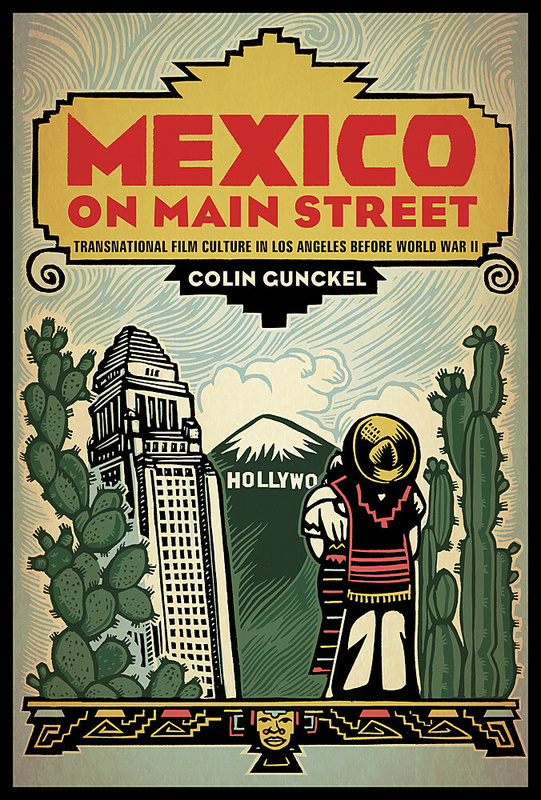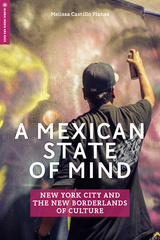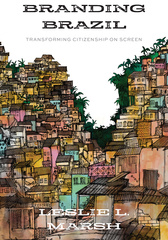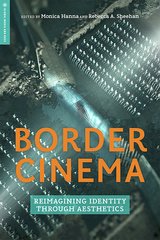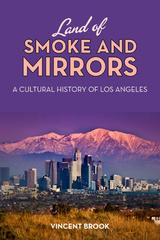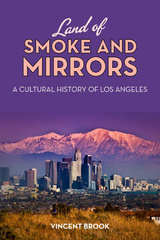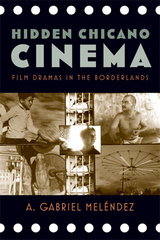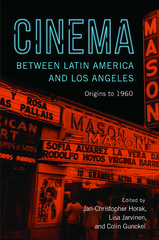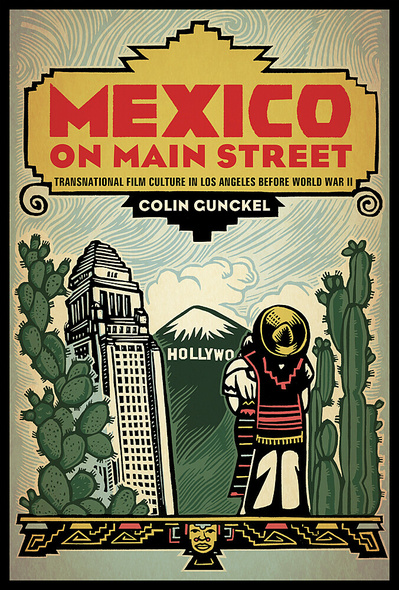
264 pages, 6 x 9
31 photos, 3 maps
Paperback
Release Date:01 Apr 2015
ISBN:9780813570754
Hardcover
Release Date:01 Apr 2015
ISBN:9780813570761
Mexico on Main Street
Transnational Film Culture in Los Angeles before World War II
Rutgers University Press
In the early decades of the twentieth-century, Main Street was the heart of Los Angeles’s Mexican immigrant community. It was also the hub for an extensive, largely forgotten film culture that thrived in L.A. during the early days of Hollywood. Drawing from rare archives, including the city’s Spanish-language newspapers, Colin Gunckel vividly demonstrates how this immigrant community pioneered a practice of transnational media convergence, consuming films from Hollywood and Mexico, while also producing fan publications, fiction, criticism, music, and live theatrical events.
Mexico on Main Street locates this film culture at the center of a series of key debates concerning national identity, ethnicity, class, and the role of Mexicans within Hollywood before World War II. As Gunckel shows, the immigrant community’s cultural elite tried to rally the working-class population toward the cause of Mexican nationalism, while Hollywood sought to position them as part of a lucrative transnational Latin American market. Yet ironically, both Hollywood studios and Mexican American cultural elites used the media to present negative depictions of working-class Mexicans, portraying their behaviors as a threat to middle-class respectability. Rather than simply depicting working-class immigrants as pawns of these power players, however, Gunckel reveals their active participation in the era’s film culture.
Gunckel’s innovative approach combines media studies, urban history, and ethnic studies to reconstruct a distinctive, richly layered immigrant film culture. Mexico on Main Street demonstrates how a site-specific study of cultural and ethnic issues challenges our existing conceptions of U.S. film history, Mexican cinema, and the history of Los Angeles.
A rich and impressive study of how Mexican film culture in Los Angeles responded to and shaped film industries of both the U.S. and Mexico.
This provocative book should inspire many other works on the topic.
This provocative book should inspire many other works on the topic.
One of the most impressive contributions this book makes to the field of film and media studies is its reminder that film and film culture exist in relation to broader cultural and social configurations such as immigration.
Gunckel has a grand architectural eye, and has provided maps and photos of the dozens of theaters and entertainment venues along Main Street. But his real strength is in his narrative power.
Gunckel has a grand architectural eye, and has provided maps and photos of the dozens of theaters and entertainment venues along Main Street. But his real strength is in his narrative power.
One of the most impressive contributions this book makes to the field of film and media studies is its reminder that film and film culture exist in relation to broader cultural and social configurations such as immigration.
Mexico on Main Street is an engaging and thought provoking text that makes major contributions to overlapping areas of film studies.
Mexico on Main Street is an engaging and thought provoking text that makes major contributions to overlapping areas of film studies.
A rich and impressive study of how Mexican film culture in Los Angeles responded to and shaped film industries of both the U.S. and Mexico.
In this insightful archival study, Colin Gunckel 're-Mexicanizes' Hollywood history, revealing the dynamic transnational film culture created by Los Angeles’s Mexican-descent community in the first half of the 20th century. A must-read book that expands the borders of American cinema.
COLIN GUNCKEL is an assistant professor of screen arts and cultures, American culture, and Latina/o Studies at the University of Michigan, Ann Arbor. He serves as associate editor of the A Ver: Revisioning Art History series.
Acknowledgments
Introduction
1 Constructing Mexican Los Angeles: Competing Images of an Immigrant Population
2 “Spectacles of High Morality and Culture”: Theatrical Culture and Aspirations of Mexican Community in the 1920s
3 The Audible and the Invisible: The Transition to Sound and “De-Mexicanization” of Hollywood
4 “Fashionable Charros and Chinas Poblanas”: Mexican Cinema and the Dilemma of the Comedia Ranchera
5 “Now We Have Mexican Cinema”?: Navigating Transnational Mexicanidad in a Moment of Crisis
Conclusion: Hola México/Hello Mexico
Notes
Bibliography
Index

